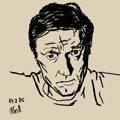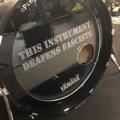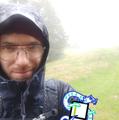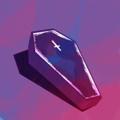Den Roman habe ich vor allem deshalb mit in den Urlaub genommen, weil er das "Leitbuch" dieser Bookwyrm-Instanz ist und ich herausfinden wollte, was denn dahinter steckt. Vielen Dank an die Admins für den Hinweis auf das Buch, sonst hätte ich es sicher nicht gefunden!
Als 3. Generation Ost habe ich das Buch zunächst als Reflexion des kalten Kriegs und als Vergleich zwischen Ostblock und westlichem Abendland gelesen. Vor allem haben mich die Probleme auf Anarres angeregt -- wie kommt es zu Machtstrukturen, obwohl Macht gerade nicht gewollt ist, wie kann eine solche Gesellschaft (Hungers)krisen überstehen, wie kann eine solche Gesellschaft mit anderen, aggressiveren Gesellschaft in Kontakt sein?
Neu für mich war in dem Buch der wiederholt auftauchende Begriff des Anarchosyndikalismus. Ich erinnerte mich vage an einen Essay von Noam Chomsky ("What is the Common Good?"), wo dieser über diesen Begriff sprach und dabei Rudolf Rocker zitierte, in etwa "Anarchismus ist kein feststehendes, in sich geschlossenes Gesellschaftssystem, sondern eine bestimmte Richtung in der geschichtlichen Entwicklung der Menschheit – einerseits die Befreiung des Einzelnen aus dem Zwang von Staat und Gesellschaft, andererseits der enge Zusammenschluss der Menschen auf freiwilliger, unabhängiger Basis." Ich glaube, Ursula Le Guin geht es mehr um diese Richtung der Menschheit statt um den Ost-West-Konflikt.
Und so lassen sich auch die Gedanken des Buches auf andere Bewegungen wie z.B. die Befreiungstheologie in Südamerika übertragen (ein Beispiel das Chomsky nannte).
Beim Lesen des Romans war ich viel im Kopf, im Denken unterwegs. Ähnlich fühlte ich mich beim Lesen von Ayelet Gundar-Goshen.
Das Buch ist nicht idealistisch, sondern widmet sich umfassend der Frage, was alles schiefgehen kann. Das erinnert mich an ein Interview mit Miranda Fricker bei Sternstunden Philosophie, wo sie sagt: "Ich bin geradezu besessen von Dingen, die schiefgehen [...], denn um zu verstehen, wie wir Menschen gut miteinander umgehen können, [...], müssen wir unser Scheitern verstehen. Wir scheitern nämlich nicht zufällig, sondern weil das Scheitern bereits in der Struktur unserer Praxis angelegt ist."















